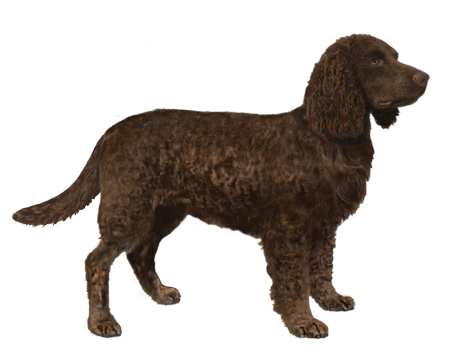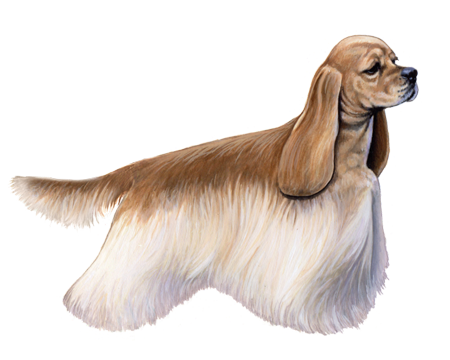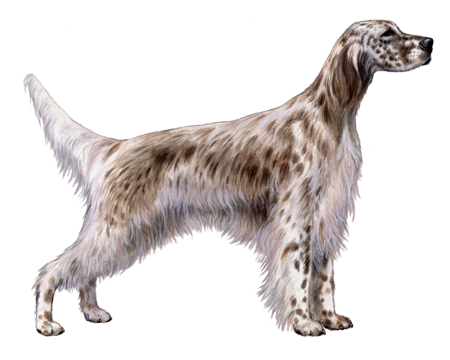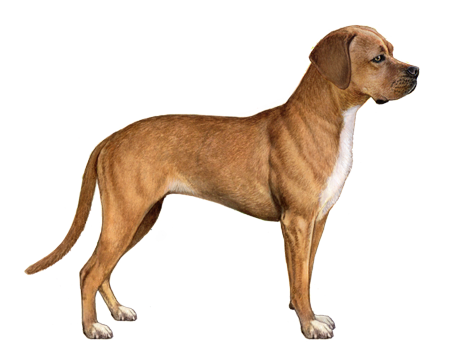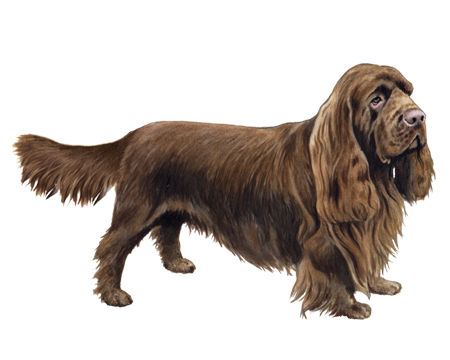
Gordon Setter
Gordon Setters are active, alert, and intelligent. Their stamina and a keen sense of smell make them excellent bird dogs. But when not showing off their hunting skills, Gorden Setters are than happy to curl up by the fire with their families.
Interested in discovering if your dog is a Gordon Setter?
Check out Wisdom Panel's DNA tests.

Gordon Setter Traits
General Appearance
Gordon Setters are the largest and heaviest dogs in the Setter family. The breed has a sturdy, active, stylish appearance.
Coat and Colouring
The Gordon Setter's coat is straight or slightly wavy, with long hair on the ears, chest, stomach, back of the legs, and tail. Gordons are usually coal black with tan markings. The tan varies from a rich chestnut to a deep mahogany color. On rare occasions, red Gordons show up in litters due to a recessive red gene.
Distinctive Physical Traits
The head of the Gordon Setter is deep rather than broad. Its eyes are round and dark brown. The ears are set low on the head and are fairly large and thin.
Gordons have long, lean necks. The breed's topline slopes moderately, and the body is short from the shoulder to the hips. The tail is short and doesn't reach below the hocks. It's thick at the base and finishes to a fine point at the tip.
Gordon Setter Temperament
Gordon Setters make fantastic family dogs. They are loyal, loving, and protective of their owners and excellent with children. They're typically friendly towards other dogs and pets as long as they've been properly socializated.
Gordon Setters are known for their stamina and require a lot of daily exercise. They have a powerful hunting instinct, so they're driven to run and chase. An enclosed yard provides a safe space for them to burn off energy.


Gordon Setter History
The Gordon Setter is one of the lesser-known members of the Setter family. Originating in Scotland and England in the 1600s, Gordon Setters hunted grouse and similar birds. First referred to as the "Black and Fallow Setting Dog," this breed was ultimately named to honor the fourth Duke of Gordon—who played a significant role in its development.
Direct ancestors of the Gordon Setter include the Spanish Pointer and other Spanish breeds. But experts believe Irish Setters were also involved in the early development of the breed.
First introduced to the United States in 1842 by Secretary of State Daniel Webster, Gordon Setters quickly became very popular and received. The breed received American Kennel Club recognition in 1884.
Gordon Setter Care
Nutrition
Gordon Setters require a high-quality food that's appropriate for their life stage (e.g., puppy, adult, senior) and activity level. They also benefit from diets formulated for large-breed dogs. In particular, large-breed puppy diets keep them from growing too fast—which may decrease the incidence or severity of hip dysplasia as they age.
Gordon Setters are prone to bloat (also known as twisted stomach). To help prevent this life-threatening condition, avoid feeding them immediately after any kind of vigorous activity. Wait at least an hour after meals before allowing them to run or exercise.
To keep your Gordon Setter at a healthy weight, monitor their food intake carefully and measure out their meals to avoid accidental overfeeding. And don't forget to count calories from treats in their daily totals. As a guideline, treats should make up no more than 10% of a dog's calories.
Grooming
Brush your Gordon Setter at least once a week to prevent matting and minimize shedding. Also, trim hair around the feet, ears, and tail as needed to keep their coats looking neat and tidy.
Gordon Setters' long ears may make them more susceptible to ear infections. For this reason, check and clean their ears regularly to prevent infections from developing.
Maintaining good dental hygiene is essential for the overall long-term health of all dogs. In addition to scheduling professional dental cleanings, establish an at-home dental care routine that includes regular teeth brushing.
Exercise
Gordon Setters are energetic dogs that require a lot of daily exercise. They also love spending time with their humans, so they'll be happiest doing activities that involve their family members. Try taking this breed for long walks, running them in a fenced yard, or playing fetch.
Gordon Setters also seem to enjoy participating in dog sports such as field trials, tracking, agility, and competitive obedience. These activities provide both physical exercise and mental stimulation.
Training
Gordon Setters are very intelligent, but they can be stubborn. To reduce this tendency, apply reward-based training techniques using motivational tools, such as toys and treats.

Gordon Setter Genetic Health Conditions
-
Cerebellar Ataxia
Cerebellar Ataxias (CAs) are a group of disorders in which there is a degeneration in the movement center of the brain, known as the cerebellum. The degeneration leads to a lack of coordination in movements.
Knowing if your Gordon Setter is a carrier or at-risk for these conditions can help you and your veterinarian plan for your pup's lifelong care. With Wisdom Panel™ Premium, you can get results for over 200 genetic health tests.
Breed Group
Sporting
The sporting group breeds are incredibly diverse in personality and appearance, but can be characterized as very sturdy. They were developed to work closely with people and in general have a very responsive nature and high intelligence.




